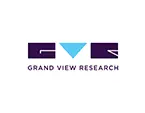MBA Business Analytics
Programme Overview
Data is the new oil in today’s world and for businesses to get the edge they need to organise decision-making, strategise, and build a path towards innovation depending on insights obtained through data. MIT-WPU offers the MBA in Business Analytics programme that equips students for the increasingly popular field of data analytics and trains them with knowledge they need in this area.
The global business analytics market was valued at US$43.25 billion in 2023, growing at a CAGR of 8.5% (2024-2032). It demonstrates that data-driven decision-making is becoming ever more relevant in the business landscape.
It combines business insight with data analytics tools and techniques. You will learn to utilise the power of data to create actionable insights that inform strategic decisions and drive business performance.
This curriculum includes key components in predictive analytics, machine learning, data visualisation, and business intelligence, training learners to be experts in extracting value from data. By applying these skills in real-world settings through case studies, industry projects, and internships, you are prepared to meet the needs of industries such as finance, marketing, operations, and supply chain management.
You will be trained to analyse and interpret complex datasets using modern analytics tools and technologies, including Python, R, SQL, and Tableau. Additionally, the programme features modules in business strategy so that students can communicate their findings and make strategic decisions. The MBA in Business Analytics also offers you the opportunity for global exposure through international immersion programmes and partnerships with industry leaders. With an increasing demand for business analytics professionals, the MIT-WPU MBA programme ensures you are well-prepared for the ever-evolving landscape of data-driven business environments.
Duration & Fees
Duration
2 Years
Applications Open for 2026
Fee Per Year
₹ 5,00,000
Scholarship
| Scholarship for AY 2026-27 | MHT-CET 26 / CAT 25/ MAT - Sept 2025 to June 2026 / XAT 26 | NMAT / GMAT |
|---|---|---|
|
Dr. Vishwanath Karad Scholarship |
MHTCET - 26 / CAT - 25/ XAT - 26 90 & above MAT - Sept 2025 to June 2026 95 & above |
NMAT - 280 & above, GMAT - 650 & above |
|
MIT-WPU Scholarship I |
MATCET - 26 / CAT - 25/ XAT - 26 85 & above MAT - Sept 2025 to June 2026 92 & above |
NMAT - 250 & above, GMAT - 550 & above |
|
MIT-WPU Scholarship II |
MATCET - 26 / CAT - 25/ XAT - 26 80 & above MAT - Sept 2025 to June 2026 90 & above |
NMAT - 230 & above, GMAT - 500 & above |
Note: Scholarships will be awarded based on the MHT-CET 26/ CAT 25/ MAT - Sept 2025 to June 2026/XAT 26 /NMAT/GMAT Score/ Percentile.
Terms & Conditions Apply:
- All Scholarships are awarded on a First Come First Serve basis. All Scholarships are awarded as fee adjustments.
- To continue the scholarship for the entire duration of the programme, a minimum level of the academic score has to be maintained at an 8 CGPA across all semesters, attendance is to be maintained at a minimum of 80 percent, with no live backlogs in any subject/programme and no semester break, and there should be no disciplinary action against the student.
For more detailed information visit our website: https://mitwpu.edu.in/scholarships
Eligibility
Minimum 60% aggregate marks in 3/4-year graduation degree in any stream from a UGC-approved institution/university or its equivalent (Minimum 55% aggregate marks for candidates belonging to the Reserved Category from Maharashtra State).
AND
A minimum of 60% aggregate marks in Class 10 (SSC) and Class 12 (HSC) examinations, with English as a compulsory subject.
AND
A valid non-zero score in the relevant entrance examination conducted by the competent authority.
Selection Process
Admission will be based on the merit of a valid score in CAT 2025, XAT 2026, NMAT 2025, GMAT, CMAT 2026, MAH-CET 2026, PERA 2026 or MAT (September 2025).
AND
Candidates will also be evaluated through Group Discussion (GD)/Extempore, Personal Interaction (PI) conducted by MIT-WPU, along with consideration of their Past Academic Record and Work Experience.
AND
The valid (non-zero) national level entrance score is mandatory for confirmation of admission.
Programme Highlights
- Advanced Analytics Focus : The programme teaches data analysis, predictive analytics, and machine learning techniques using tools like Python, R, and Tableau.
- Industry Integration : Case studies, internships, and live projects provide hands-on experience in real business environments.
- Global Exposure : International immersion programmes and exposure to global business analytics practices through partnerships with universities and multinational companies.
- Practical Learning : A strong emphasis on applying theoretical knowledge to real-world scenarios through internships, workshops, and industry visits.
- Entrepreneurial Development : The programme includes entrepreneurial mentoring and access to the MIT-WPU Technology Business Incubator (TBI), supporting start-up ventures and business innovation.
- Holistic Learning : Embeds values such as ethical data practices, regulatory compliance, and sustainable analytics practices.
- Leadership and Communication Skills : The curriculum focuses on leadership development, strategic thinking, and effective communication in multidisciplinary teams.
Programme Structure
| Semester | Course Name/Course Title | Course Type | Credits |
|---|---|---|---|
| I | Accounting for Business Decision Making | PF | 3 |
| I | Managerial Communication | PF | 2 |
| I | Managerial Economics | PF | 3 |
| I | Organisation Structure, System & Processes | PF | 2 |
| I | Organisational Behaviour | PF | 3 |
| I | Quantitative Techniques for Business Decision Making | PF | 3 |
| I | Understanding the Metaverse | PF | 2 |
| I | Scientific Studies of Mind, Matter, Spirit and Consciousness | UC | 2 |
| I | Yoga | UC | 1 |
| Total: | 21 | ||
| Semester | Course Name/Course Title | Course Type | Credits |
|---|---|---|---|
| II | Entrepreneurship and New Venture Planning | PF | 2 |
| II | Financial Management | PF | 3 |
| II | Human Resource Management | PF | 3 |
| II | Legal Aspects of Business | PF | 3 |
| II | Marketing Management | PF | 3 |
| II | Operations and Supply Chain Management | PF | 3 |
| II | Research Methodology | PF | 4 |
| II | Peacebuilding: Global Initiatives | UC | 2 |
| Total: | 23 | ||
| Semester | Course Name/Course Title | Course Type | Credits |
|---|---|---|---|
| III | Business Analytics & Data Visualization | PF | 2 |
| III | Environment Sustainability and Governance | PF | 2 |
| III | Strategic Management | PF | 3 |
| III | Ethics and Privacy Issues in Analytics | PM | 3 |
| III | Business Statistics | PM | 3 |
| III | Programme Elective - I | PE | 3 |
| III | Programme Elective - II | PE | 3 |
| III | Programme Elective - III | PE | 3 |
| III | Summer Internship Programme | PR | 4 |
| Total: | 26 | ||
| Semester | Course Name/Course Title | Course Type | Credits |
|---|---|---|---|
| IV | Data Mining and Database Management | PM | 3 |
| IV | Data Collection Tool Development and Validation | PM | 3 |
| IV | Programme Elective - IV | PE | 3 |
| IV | Programme Elective – V | PE | 3 |
| IV | Programme Elective – VI | PE | 3 |
| IV | Capstone (Research Project) | PR | 3 |
| Total: | 18 | ||
| Semester | Course Name/Course Title | Course Type |
|---|---|---|
| III | AI & Machine Learning | Programme Elective – I |
| III | Blockchain Technology and Robotics | Programme Elective – II |
| III | Content Analytics | Programme Elective – III |
| III | Financial Analytics | Programme Elective – IV |
| III | Healthcare Analytics | Programme Elective – V |
| IV | Marketing Analytics | Programme Elective – VI |
| IV | Multivariate Analytics | Programme Elective – VII |
| IV | Operations Analytics | Programme Elective – VIII |
| IV | Python Programming | Programme Elective – IX |
| IV | R Programming | Programme Elective – X |
Career Prospects
Business Analytics Specialists
Marketing Analytics
Financial Analytics
Operations Analysts
Supply Chain Analysts
Data analyst
Management Consultants
Business Intelligence Analyst
Strategy Consultant
Project Manager
Programme Outcomes
- Master data processing, analysis, and interpretation to extract meaningful insights from complex datasets.
- Develop the ability to process, analyze, and interpret data to derive valuable insights━especially from large, complex data sets.
- Using data to better inform strategic business decision-making within your organisation for improved performance.
- Prepare for any leadership skills and direct teams and heaps in the new-age business era.
- Develop capabilities to evaluate business problems and design data-driven answers.
- Understand and uphold the ethical considerations in business analytics, ensuring responsible data handling and interpretation.
Placements & Recruiters
100% Placement Assistance
Top Recruiters
FAQs
An MBA in Business Analytics equips students with skills to analyse and interpret data to make business decisions, enhance operational efficiency, and drive business growth.
The scope of an MBA in Business Analytics is vast, with career opportunities in marketing analytics, financial analytics, operations analytics, and roles in consulting, data science, and management.
Candidates with a minimum of 60% in their undergraduate degree and valid scores from recognised entrance exams like CAT, XAT, GMAT, etc., are eligible to apply.
Graduates can explore careers as business analysts, data scientists, marketing analysts, financial analysts, operations managers, and more.
Below are some potential roles, along with their average annual salaries in India:
- Business Analyst: ₹9,00,000
- Data Scientist: ₹12,00,000 – ₹15,00,000
- Marketing Analyst: ₹7,00,000 – ₹10,00,000
- Financial Analyst:₹2,00,000 – ₹12,30,000
- Operations Manager: ₹17,90,000 – ₹18,50,000















 admissions@mitwpu.edu.in
admissions@mitwpu.edu.in
